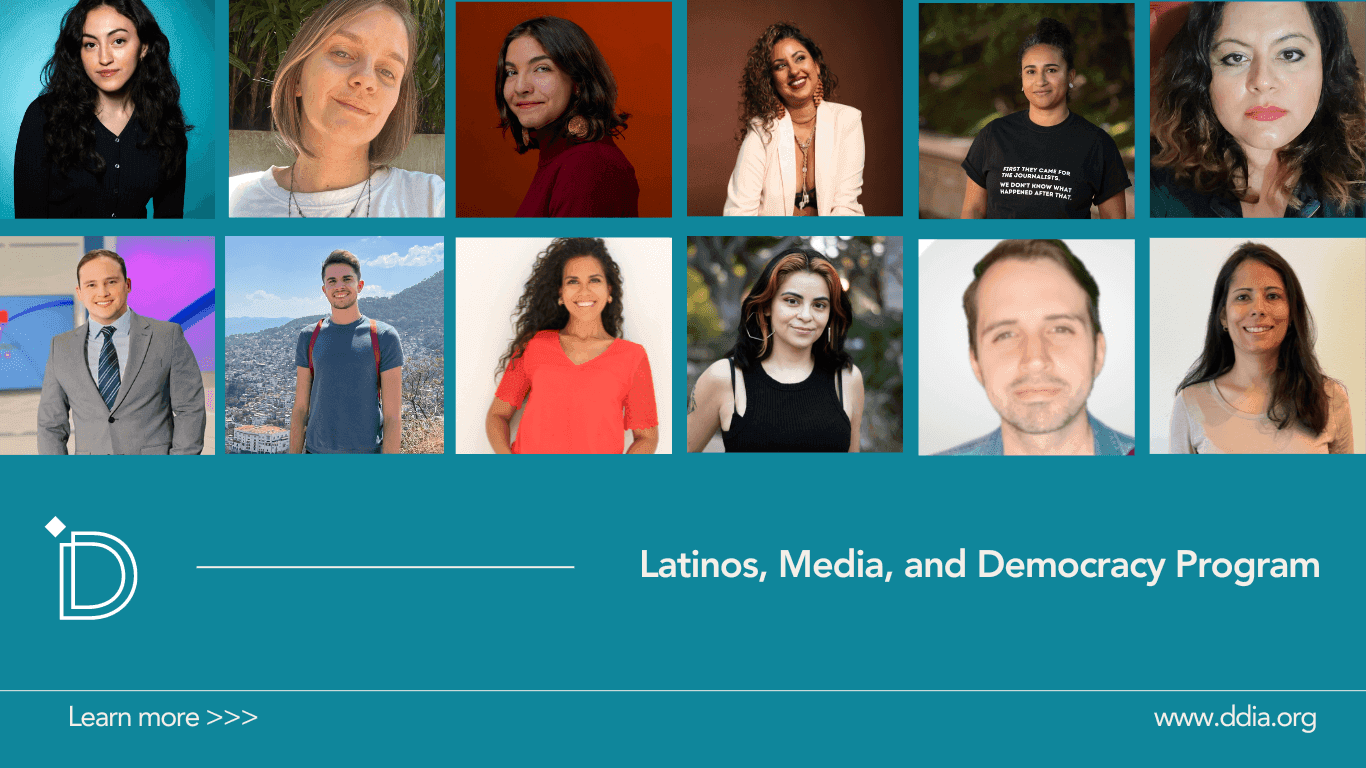August 30, 2024: DDIA Concludes 2024 Latinos, Media, and Democracy Program with its Inaugural Cohort of Journalists and Media Professionals
The Digital Democracy Institute of the Americas (DDIA) is proud to announce the conclusion of its 2024 Latinos, Media, and Democracy Program: The Periodistas Edition. Over the past several months, this initiative brought together 12 talented journalists, media professionals, and content creators, to share and discuss strategies, findings, tools and knowledge important for countering online harms impacting Latino communities across the U.S. and Latin America.
As the program wraps up, DDIA will be actively promoting the impactful work each participant has produced based on the lessons learned. This includes a diverse range of content, from in-depth reports and investigative pieces to innovative storytelling and social media strategies, all aimed at strengthening a healthier information ecosystem for Latino communities.
We encourage everyone to stay tuned as we share and celebrate the achievements of these remarkable professionals and their broader goals of enhancing media integrity and democratic engagement within the Latino community.
Follow us on LinkedIn, Twitter, and Facebook.
May 7, 2024: Meet the 12 professionals selected to join DDIA’s 2024 Latinos, Media, and Democracy Program
DDIA is proud to introduce the 12 journalists / media professionals / content creators who will participate in the 2024 edition of DDIA’s inaugural “Latinos, Media, and Democracy Program: The Periodistas Edition.”
The group, comprising nine reporters, two editors and one social media strategist focused on covering elections and democracy in the U.S. and Latin America will be given the opportunity to learn from and engage with experts from a variety of disciplines, taking part in briefings and workshops on topics ranging from U.S. Latino-specific disinformation trends to inoculation techniques to practical investigative approaches and strategic storytelling.
The twelve members of this cohort – nine women and three men – were carefully selected from a talented pool of applicants for their vision, passion, and approach to journalism and content creation that strengthens a healthier information ecosystem for Latino communities.
A reflection of the diversity of Latino communities, these professionals represent the regions and countries in which they were born, work, and live, which include seven U.S. states and Puerto Rico, Brazil, Ecuador, Mexico, Uruguay, and Venezuela.
Please join us in welcoming LMDP 2024 participants!
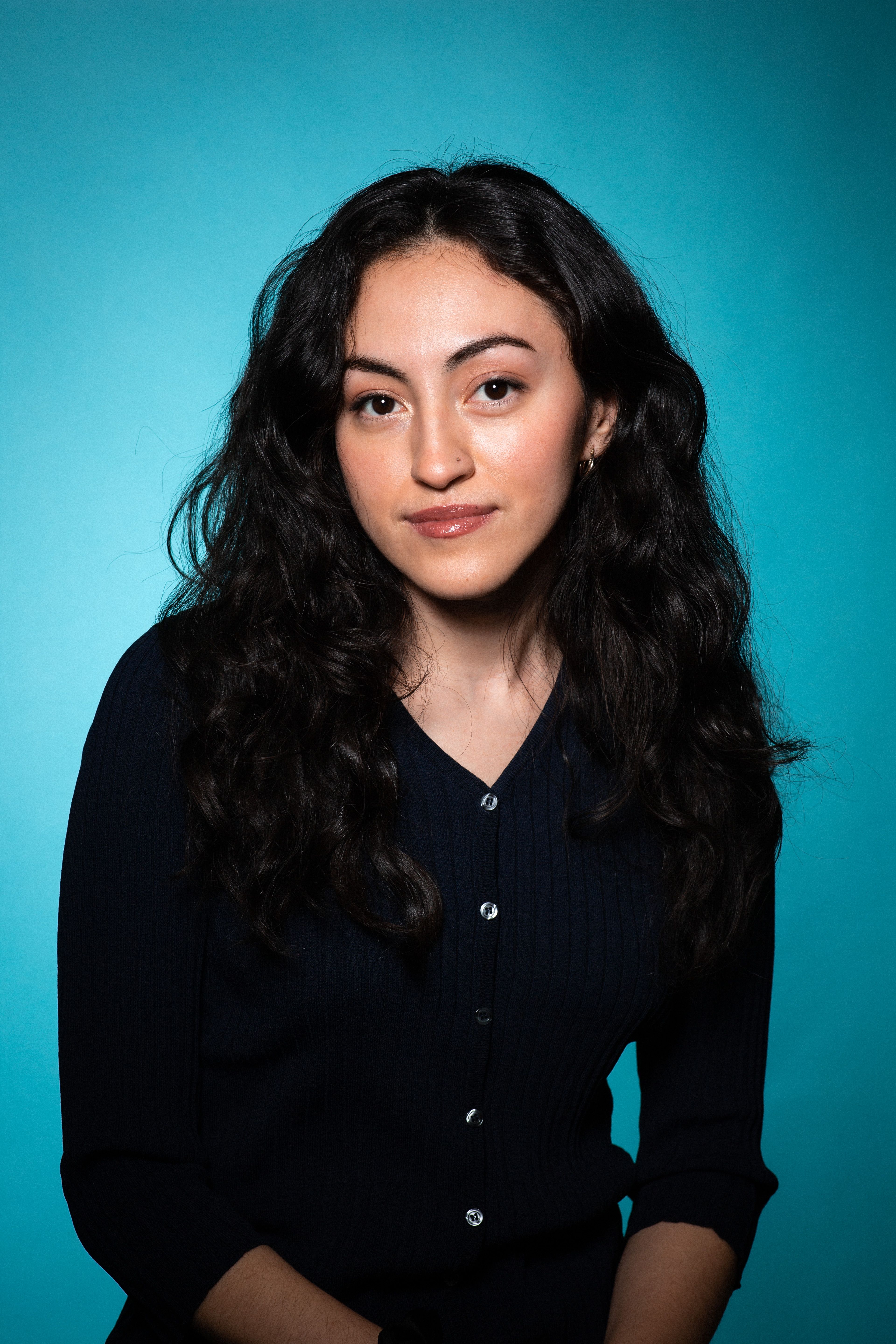
Alex Arriaga is an Audience Engagement Editor at New York Focus, a non-profit news organization covering the New York State government. She leads the organization's strategies to reach audiences across the state, and has been researching the best ways to do so by conducting a statewide news survey and hosting community discussions about local news through a listening tour. She has a background reporting on immigration, criminal justice, voting rights and elections.
Taking into account learnings from the program, Arriaga produced the following content:
Fact-checks to counter misinformation on noncitizens voting (Nov 4, 2024)
Brief description:
NYFocus debunked a claim that New Yorkers would vote on a proposed amendment to the New York State Constitution. The content was published on Instagram and TikTok.
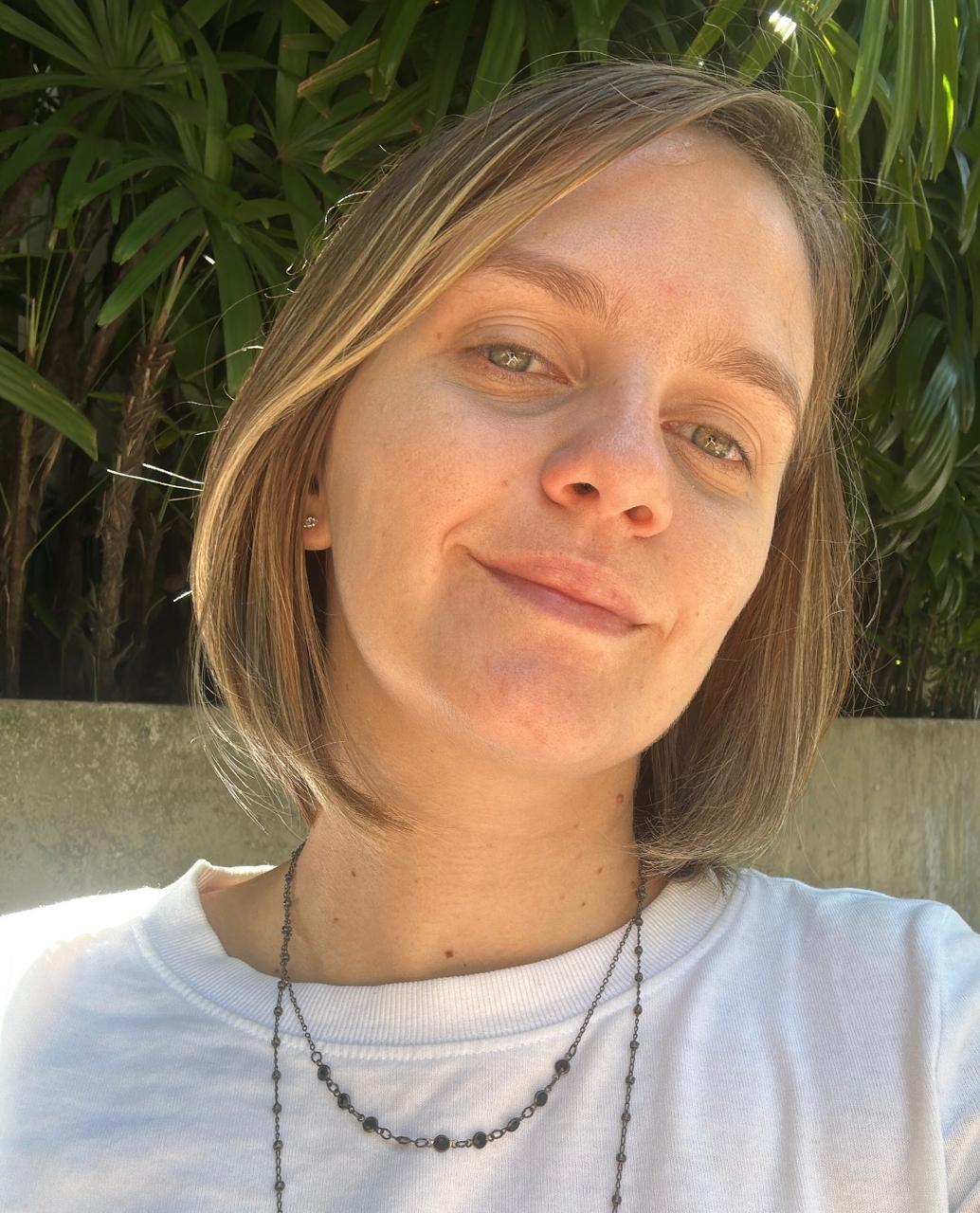
Barbara Nobrega Ramos is a journalist working for Globonews/TV GLOBO from Rio de Janeiro, Brazil.
Taking into account learnings from the program, Nobrega produced the following content:
Latino vote and its impact on this year's U.S. election (Jul 9, 2024)
Brief description: In a discussion held live on GloboNews after the first U.S. presidential TV debate, anchor Marcelo Lins and producer Bárbara Nobrega developed visuals linking migration to the Latino vote and its impact on this year's election.
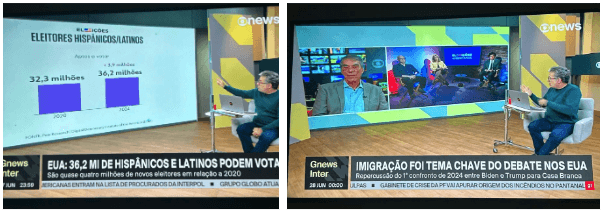
Clara Longo de Freitas is a neighborhood reporter at The Baltimore Banner. Originally from Brazil, she covers East Baltimore communities. She is an award-winning journalist and graduate of the University of Maryland, where she spent most of her college years looking into workers' conditions amid the COVID-19 pandemic, and diversity and equity issues.

Constanza Eliana Chinea is a journalist and an inclusive producer at Malcriá Media. She is currently the host of the Political Pendejadas podcast. Born in Puerto Rico, Constanza currently lives in Los Angeles and has been a contributor for the L.A. Times, KnockLA, The Young Turks, and Latino Rebels. She has also hosted/produced a Spotify Original podcast.
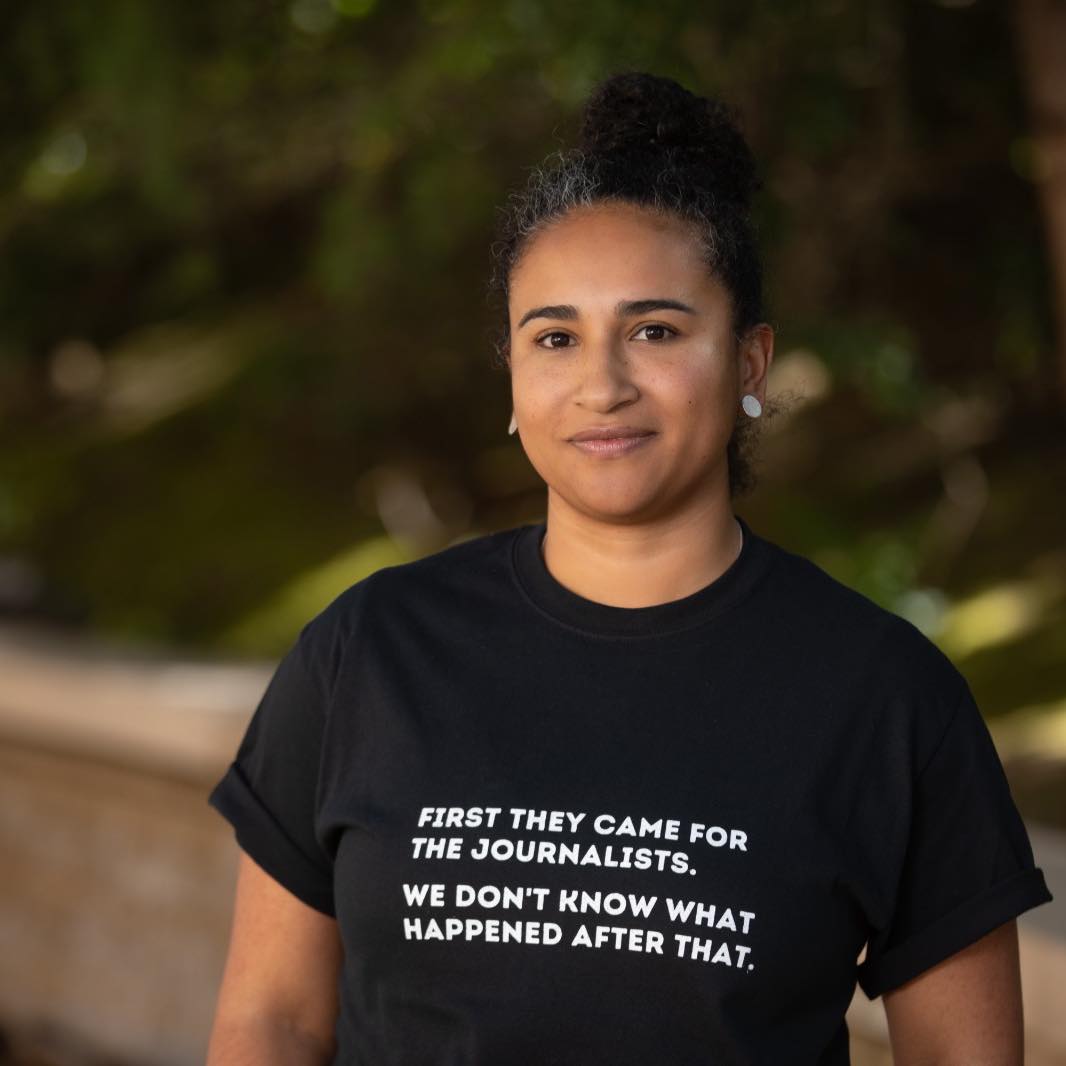
Desirée Yépez is a reporter and digital producer for Radio Ambulante Studios and a freelancer for El País. She was born in Ecuador, and has won several awards as a journalist, fact-checker, and author. Deisée is based in California. As a reporter, she covers human rights, gender, and vulnerable communities.
Taking into account learnings from the program, Yépez produced the following content:
Campañas de miedo: desinformación y el voto latino en Estados Unidos (Oct 25, 2024)
Brief description: In this podcast from El Hilo, Yépez's team interviews specialists to show how Latino voters are crucial in the 2024 U.S. elections, and how disinformation targeting them is on the rise, spreading fear and mistrust. In this episode, El Hilo discusses how misinformation tactics evolve and examine how Spanish-language radio is used to influence Latino communities.
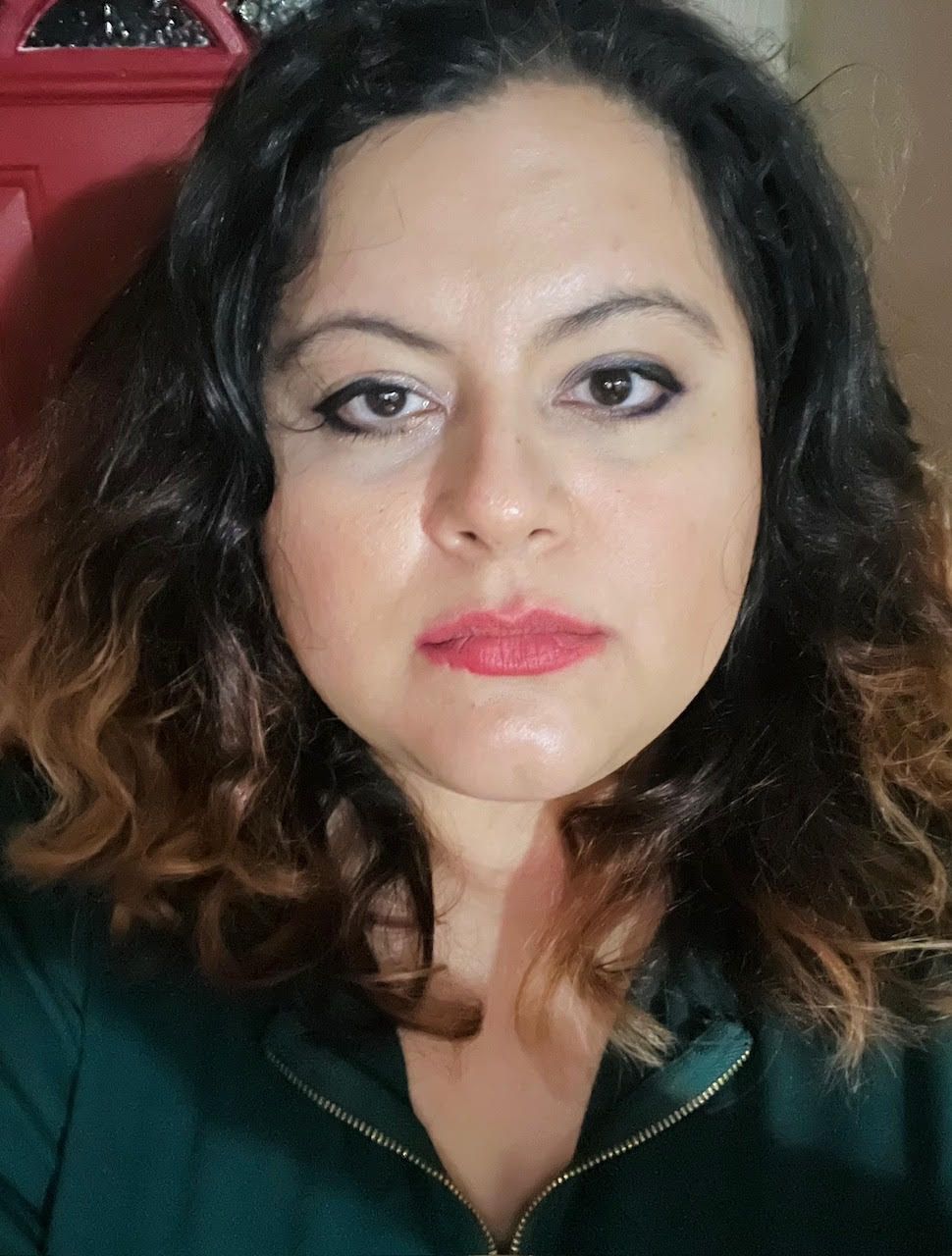
Estefania Arellano-Bermudez is a regular contributor for El Central Hispanic News. She has written for the Telegram News and Planet Detroit.

Jesús Andrés Bastidas is a multimedia reporter for Noticiero Telemundo Utah, which airs live at 5 PM AND 10 PM on KTMW, which simulcasts on KULX, a station that serves the Spanish-speaking community in the state of Utah. As part of Noticiero Telemundo Utah, Jesús reports the latest events, covering current events from areas where the Hispanic community is a protagonist.
Taking into account learnings from the program, Bastidas delivered the following content:
Batalla migratoria en Utah: ¿Contradicciones en la política migratoria? (Jul 12, 2024)
Brief description: A special investigative report on migration and the evolving local discourse and policies surrounding this contentious issue, which has become a focal point in recent weeks during ongoing campaigns.
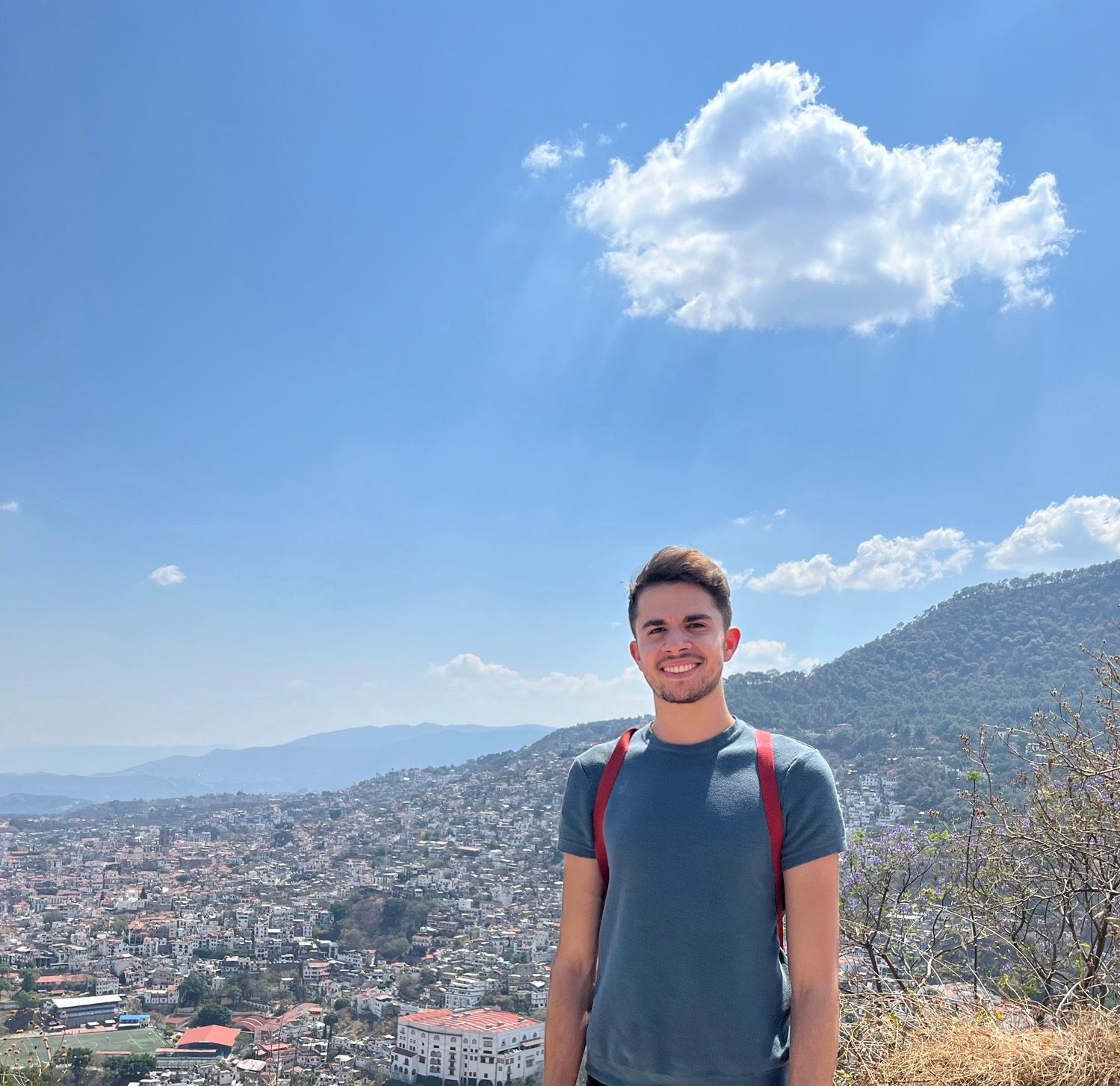
Juan Ignacio Berro is an editor for the U.S. Spanish-language fact-checking service of Agence France Presse (AFP), where he coordinates a team of fact-checkers that debunk misinformation impacting Latinos and Hispanics living in the U.S.. Based in Mexico City, Juan Ignacio was born in Uruguay.
Taking into account learnings from the program, Bastidas delivered the following content:
Internal research proposal: How to better reach out to the US Latino Audience for fact-checking purposes (Aug 24, 2024)
Brief description: Based on the author's experience, the deliverable is an analysis of how fact-checking organizations that work for Latinos in the U.S. can improve their journalistic coverage and better understand their main audience concerns related to dis/misinformation.
Liz Rebecca Alarcón is the Founder & Executive Director of Pulso, a non-profit media outlet reaching more than 1 million Latinos with history, culture and commentary by and for Latinos. As a media entrepreneur and political analyst with expertise in Latin America and the U.S. Latinos, Liz's writing and commentary has been featured in The New York Times, The Atlantic, MSNBC, Time Magazine, and The Miami Herald, among others.
Taking into account learnings from the program, Alarcón produced the following content:
Fact-checks to prebunk falsehoods regarding the vote count process (Oct 30, 2024)
Brief description: A social media video inspired from LMDP's session 2 on “forewarning” of what may come as votes are counted in the presidential election.
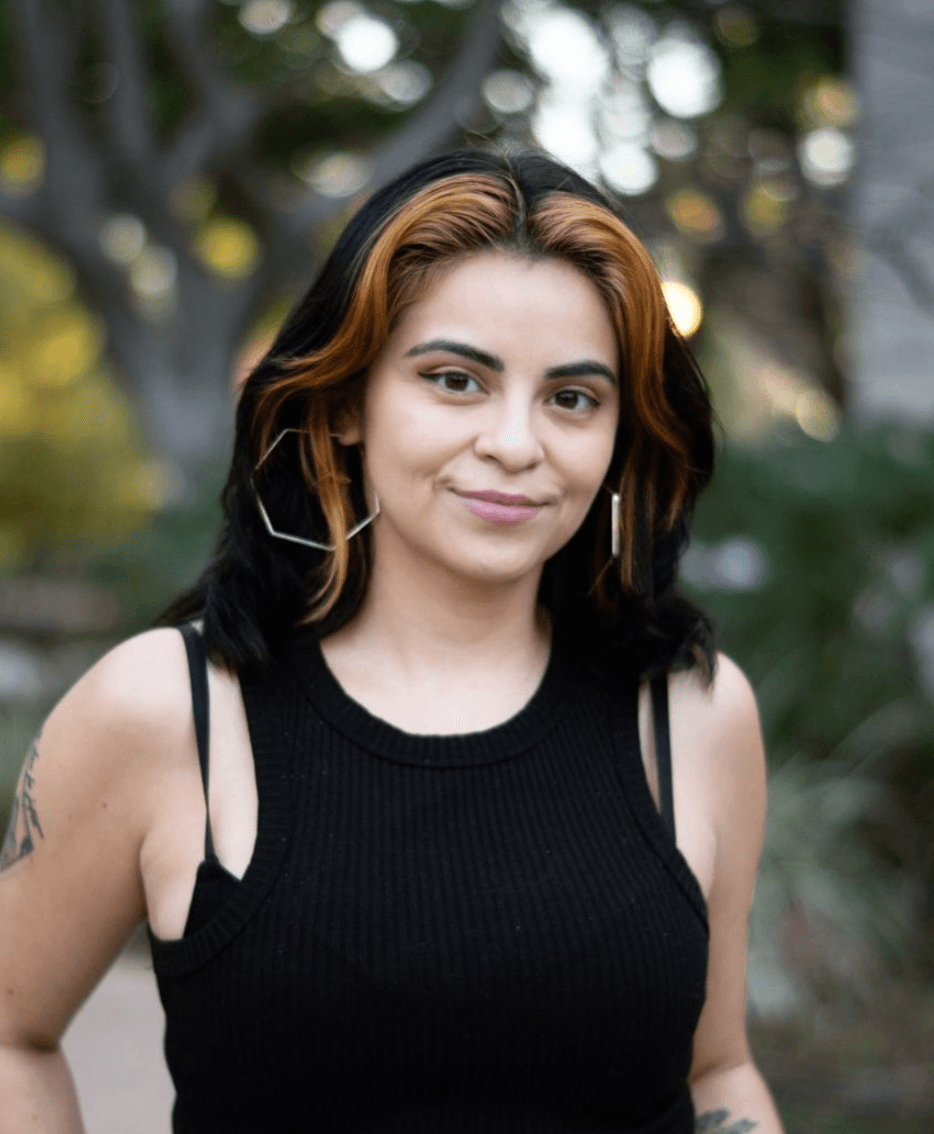
Michelle Zacarias reports for CALÓ News, a publication under the Latino Media Collaborative. She is an award-winning journalist selected for the inaugural cohort of Berkeley’s 2023-25 California Local News Fellowship. Born and raised in Chicago, Michelle currently resides in Southern California. She is passionate about covering Latine/x issues, anti-racism movements, queer identities, marginalized communities, and abolition.
Taking into account learnings from the program, Zacarias published the following content:
62% of Latinos are skeptical of misinformation despite high exposure to it, poll finds (Jul 31, 2024)
Brief description: Journalist Michelle Zacarias reported on a DDIA study that investigated various aspects related to misinformation in the context of the 2024 election. These include familiarity and belief in misinformation, the influence of political identities and values on engagement with misinformation, levels of trust in institutions and the electoral process and perceptions regarding the impact of artificial intelligence in the online world.

Rafael Olavarria is a journalist at FactChequeado. Originally from Caracas, Venezuela, he began his career at CNN en Español, working as a writer, associate producer, and breaking news anchor, among other roles. He later worked as a multimedia journalist at Univision Atlanta, where he led the fight against misinformation during the COVID-19 pandemic and the 2020 presidential elections. Between 2021 and 2023, Rafael won 12 Emmy Southeast Awards, including Best Daily News Reporter both years.
Taking into account learnings from the program,, Olavarria published the following content:
Brief description: Have you seen content on Facebook and Instagram spreading the narrative that undocumented migrants will vote in the November 5, 2024, elections? It’s not a coincidence: at Factchequeado, we discovered that money is being invested in paid ads on both platforms (in both Spanish and English) to push these kinds of claims.
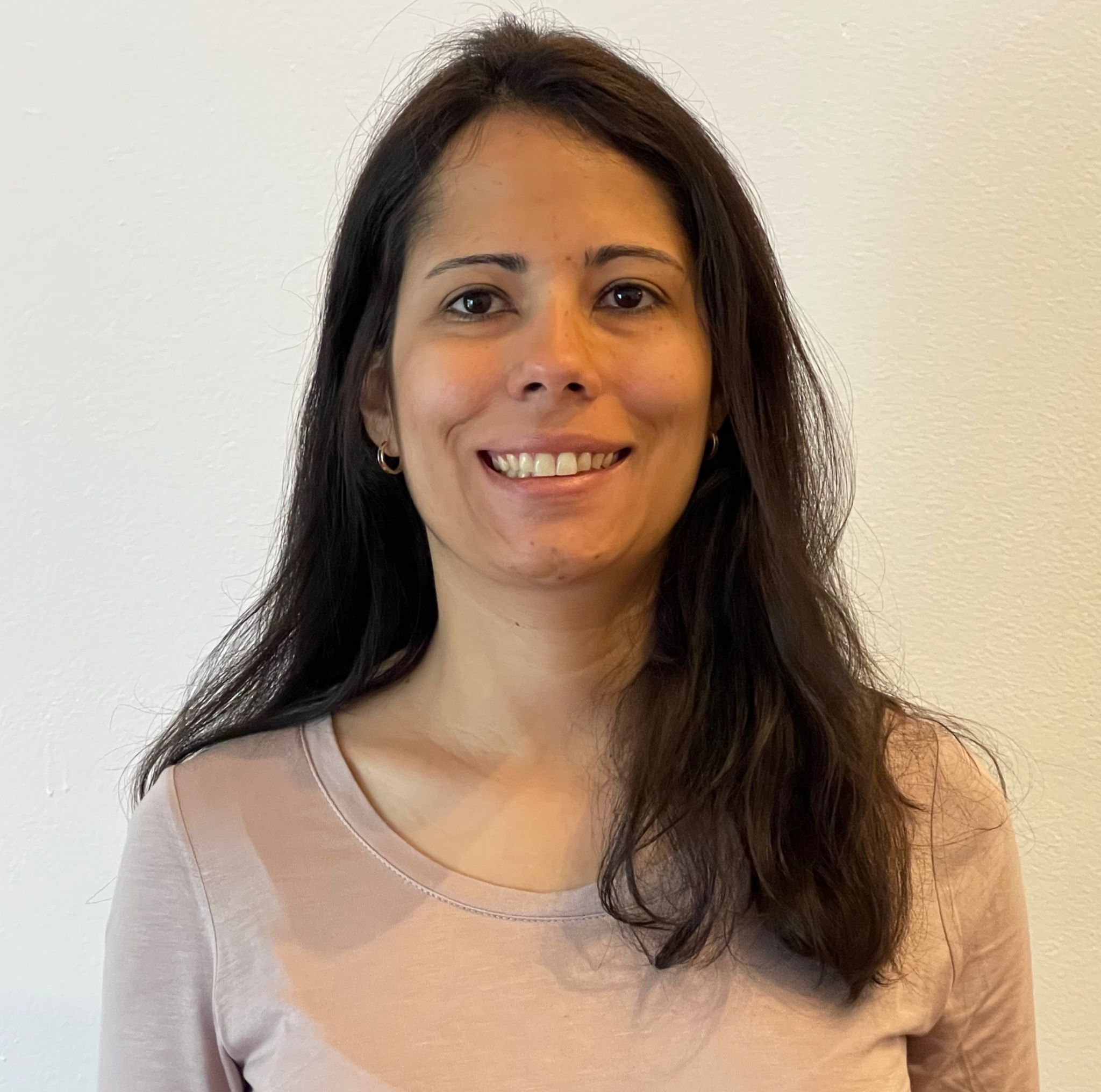
Verónica Egui Brito reports for el Nuevo Herald and Miami Herald. Originally from Caracas, Venezuela, she has dedicated her career to addressing urgent social and human rights issues. With a keen focus on her homeland, she has brought attention to pressing matters affecting Venezuelan society. Currently, she lends her journalistic expertise to covering news in the dynamic cities of Hialeah and Doral, two Spanish-speaking communities, along with their surrounding areas in South Florida.
Taking into account learnings from the program, Egui Brito published the following content:
Su audiencia en YouTube lo llevó a ser aliado clave de Trump. ¿Puede convertirlo en alcalde de Miami-Dade? (Aug 26, 2024)
Brief description: Journalists Verónica Egui Brito and Max Greenwood interviewed YouTuber Alex Otaola, a Republican mayoral candidate in Miami known for his controversial narratives and famous among Floridian Latinos.
MORE ABOUT THE PROGRAM:
On March 5, 2024, DDIA launched its call for applications for The Periodistas Edition of the Latinos, Media, and Democracy program, an 8-week, no-cost, series of workshops designed to support journalists and content producers with the tools and knowledge they need to understand, cover, and counter disinformation in Latino communities in the United States.
The twelve participants selected for this program will be given the opportunity to learn from and engage with experts from a variety of disciplines, and will take part in briefings and workshops on topics ranging from U.S. Latino-specific disinformation trends to inoculation techniques to practical investigative approaches and strategic storytelling.
ELIGIBILITY CRITERIA:
Participants must fit into at least one of the categories described below:
Be a U.S.-based journalist covering politics or elections in the United States
Be a Latin America-based journalist covering the 2024 elections in the United States
Be a U.S.-based journalist covering entertainment, tech or social media
Be a U.S.-based journalist covering specific states or cities
Be a media content producer based in the United States or in Latin America producing content for YouTube or TikTok channels that are geared at Latinos
Participants should be journalists or content producers with between 1 and 5 years of experience, who are fluent in English (and preferably also Spanish or Portuguese), and are working with/for the Latino community in 2024.
Skills, attributes, and experiences that may be particularly relevant to this program include:
Interest in the intersections of politics, election, democracy and disinformation
Interest in investigating and/or researching how disinformation circulates among Latinos and how (if) it impacts on their behavior
Interest in learning new tools and techniques to improve their reporting/content production
Interest in participating in a emerging cohort of Latino-centered content producers
Knowledge, networks, or experience related to issues affecting Latinos across the United States and the hemisphere.
Access to Google Meet for the period of the program
PROGRAM EXPECTATIONS AND COMMITMENT
Be ready to dedicate at least 16 hours of time to the program between May and July 2024, being present (virtually or in person) in all sessions scheduled (in advance) by DDIA
Commit to producing and publishing at least one piece of content inspired by at least one of the lessons learned during the program, besides measuring its impact
Commit to filling out pre- and post-session surveys as part of DDIA’s measurement and evaluation requirements
MORE ABOUT THE PROGRAM
LMDP 2024 will kick off with an in-person workshop in Washington, D.C., from Thursday, May 16 - Friday, May 17, 2024. On the first day, participants will be presented with key polling, focus-group, and narrative findings on Latino engagement with disinformation and effective countermeasures. On the second day, participants will take part in various meetings with key D.C.-based policy, tech and democracy stakeholders.
Subsequent sessions, taking place online between mid-May and early July, 2024, will cover U.S. Latino voting behaviors, media consumption trends, and the importance of depolarization techniques in fostering constructive dialogue online, as well as safely investigating hate and disinformation networks, understanding tactics used to misinform, and exploring AI tools for tracking and debunking false narratives.
Optional add-on sessions provide further opportunities for skill development, including fact-checking methodologies and understanding electoral integrity policies in the social media environment.
At the end of the 8-week period, participants will be asked to produce at least one piece of content using tools, techniques or strategies learned during the program.
ABOUT DDIA
The Digital Democracy Institute of the Americas (DDIA) – operated by and for Latinos and Latin Americans – is a hub for research and interventions geared at strengthening trust and connection between communities, media, and democracy. Our team is bringing together insights and actors across the Western Hemisphere to shape a more participatory, inclusive, and resilient digital democracy. We apply research at the intersection of information integrity, belief, and behavior to build trust, connection, and capacity with communities and to shape policy interventions that bridge-build and depolarize shared information spaces in the Americas.
In an era of tech solutions to tech problems, we center the human experience in research, capacity-building and policy solutions that contribute to healthy information ecosystems necessary for vibrant digital democracies.
We envision a world where Latinos are surrounded by fact-based, reputable information that empowers them to make their voices heard across the ocean of content that is today’s Internet. Communities in the Americas deserve an information environment free of fear and repression, one that rewards connection, security, and fair participation in democracy.
